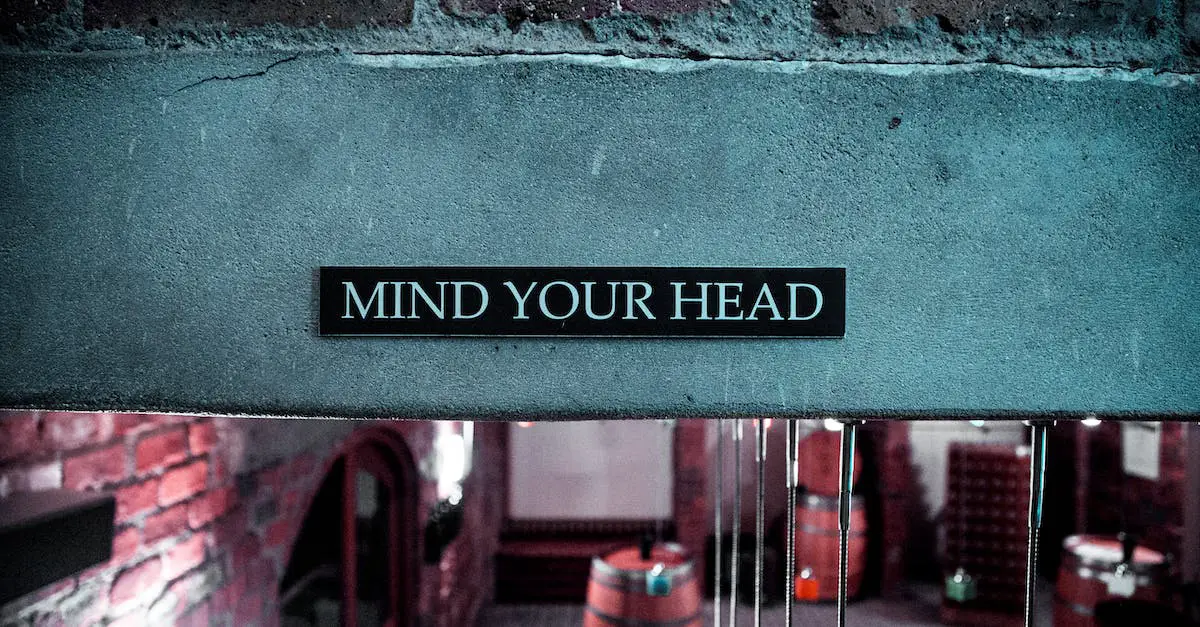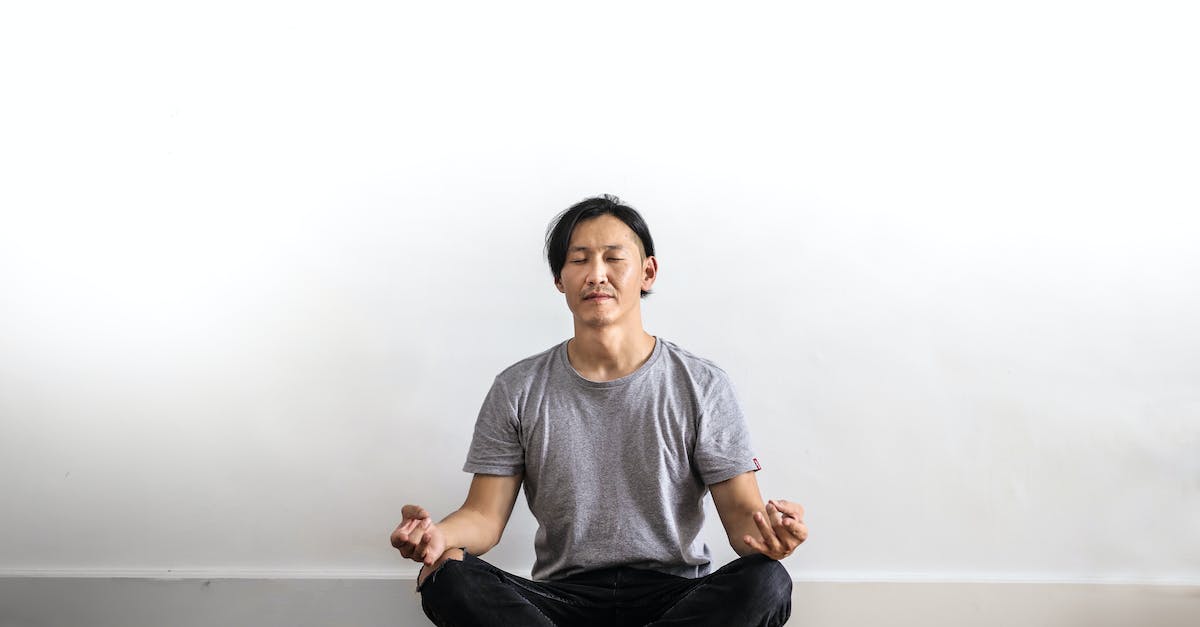Ah, mindfulness – the practice of living in the present moment and fostering a sense of awareness and acceptance towards oneself and the world around us. It sounds like an easy concept to wrap our heads around, but what are mindfulness’s benefits for our mental health?
Let me paint you a picture, dear reader. Imagine feeling like your mind is a never-ending hamster wheel, constantly running and running with no sign of stopping. Or picture feeling completely overwhelmed and anxious about the future or even the present. Maybe you’ve experienced these feelings before or are experiencing them right now. Mindfulness can offer a way to step off that hamster wheel and tap into a sense of calm and control you never knew was possible.
Now, I’m not here to sell you some quick-fix panacea for all your mental health woes – mindfulness takes work, practice, and a lot of patience. But the potential benefits – reduced stress, increased focus, better sleep, and improved overall well-being – make it a practice worth cultivating. So, pull up a cushion, take a deep breath, and dive into the world of mindfulness together.
What is mindfulness?

What is mindfulness? Well, my friend, let me tell you! Mindfulness is like a superpower for your brain. It’s the ability to be fully present at the moment, to be aware of your thoughts and feelings without judgment, and to tune out distractions. It’s like having a mental bulldozer that clears the clutter from your mind so you can focus on what’s important.
But why should you care about mindfulness? Let me give you four darn good reasons:
- Benefit 1: Stress Relief – Mindfulness is like a mini vacation for your brain. When you practice mindfulness, you tap into your body’s natural relaxation response, which slows down your heart rate, lowers your blood pressure, and reduces stress hormones like cortisol. It’s like hitting the reset button on your stress levels.
- Benefit 2: Improved Mood – Remember that mental bulldozer I mentioned earlier? Well, it’s not just good for clearing clutter. It’s also great for sweeping away negative thoughts and feelings. When you practice mindfulness, you learn to observe your thoughts and feelings without getting caught up in them. This reduces their power over you and can lead to a more positive outlook on life.
- Benefit 3: Enhanced Focus – Have you ever sat down to work on a project and found your mind wandering off to think about what you’re going to have for dinner? Yeah, me too. But when you practice mindfulness, you train your brain to stay focused on the task at hand. You learn to notice when your mind starts to wander and gently guide it back to the present moment.
- Benefit 4: Better Sleep – Raise your hand if you’ve ever spent the whole night tossing and turning, unable to shut off your brain. *raises hand* Yeah, it’s not fun. But practicing mindfulness can help. When you practice mindfulness, you learn to quiet your mind and relax your body, which can lead to better sleep. And we all know that good sleep is essential for good mental health.
So, my friend, there you have it. Mindfulness is a darn good tool to have in your mental health toolbox. Give it a try and see how it can benefit you!
The link between mindfulness and mental health

The link between mindfulness and mental health is undeniable. Practicing mindfulness has been shown to have a positive impact on mental health in a myriad of ways. So what exactly is mindfulness? It’s the art of being present in the moment, without judgment or distraction. Mindfulness can be practiced in many different ways, from meditation to simply focusing on your breath. Whatever method you choose, the benefits are clear:
- Mindfulness reduces stress and anxiety. When we’re practicing mindfulness, we’re not focusing on past regrets or future worries. We’re simply being present in the moment. This helps to reduce stress and anxiety since those negative thoughts and feelings are not taking up valuable mental space.
- Mindfulness improves focus and concentration. When we’re not distracted by negative thoughts and feelings, we’re able to focus more easily on the task at hand. Whether it’s work, school, or a creative endeavor, practicing mindfulness can help us stay focused and productive.
- Mindfulness improves relationships. When we’re present in the moment, we’re better able to connect with others. We’re more empathetic and understanding, and we’re able to communicate more effectively.
- Mindfulness improves overall well-being. When we’re not weighed down by stress and anxiety, we’re happier. Our overall well-being improves when we’re able to be present in the moment and appreciate the good things in life.
So how can you start practicing mindfulness? There are many different methods, but here are a few tips to get you started:
- Start with small moments of mindfulness. You don’t need to meditate for hours on end to practice mindfulness. Start with small moments throughout the day – taking a deep breath before responding to an email, or taking a few minutes to simply appreciate the view outside your window.
- Use mindfulness apps or guided meditations. There are many apps and resources available to help you start practicing mindfulness. Headspace and Calm are two popular apps that offer guided meditation and mindfulness exercises.
- Make mindfulness a part of your daily routine. Whether it’s a few minutes of meditation in the morning, or a mindful walk during your lunch break, try to incorporate moments of mindfulness into your daily routine.
- Practice self-compassion. Remember that practicing mindfulness is not about perfection – it’s about being present in the moment, without judgment. Be kind to yourself as you start this new practice.
So there you have it – the link between mindfulness and mental health is clear. Start practicing mindfulness today and start reaping the benefits for your mental health and overall well-being!
Improved emotional regulation

Practicing mindfulness can do wonders for your emotional regulation. When you’re overwhelmed with emotions, it can feel like you’re a hot air balloon that’s been untethered, soaring through the sky with no control. But with mindfulness, you can bring yourself back down to earth and land safely.
Here’s a little anecdote to illustrate the power of mindfulness: I once had a friend who would get easily irritated by almost everything. Someone cuts them off in traffic? Instantly angry. A coworker disagrees with them? Cue the frustration. But then they started practicing mindfulness and something incredible happened. They became more aware of their emotions and were able to regulate them more effectively. The little things that used to annoy them didn’t have the same hold over their emotions anymore.
So how does practicing mindfulness lead to improved emotional regulation? When you’re mindful, you learn to observe your thoughts and emotions without judgment. This means you’re less likely to get swept away by them. Instead, you can acknowledge them, accept them, and then choose how to respond. Mindfulness can also help you become more attuned to your body’s physical sensations, which can help you recognize when you’re starting to feel overwhelmed or anxious.
If you’re someone who struggles with emotional regulation, practicing mindfulness might just be the tool you need to start feeling more in control. Here are a few tips to get you started:
- Start with just a few minutes of mindfulness practice each day. It can be as simple as sitting in silence and paying attention to your breath.
- Try a guided meditation app or YouTube video to help you get started with mindfulness.
- When you notice yourself getting caught up in a strong emotion, take a pause and try to observe it without judgment. What are you feeling? Where do you feel it in your body?
- Experiment with different mindfulness practices to see what works best for you. Maybe you prefer to do a walking meditation or focus on a mantra.
Regular mindfulness practice allows you to feel more in control of your emotions and less overwhelmed by them. So why not give it a try? Your mental health will thank you.
Reduced anxiety and depression symptoms

Practicing mindfulness has numerous benefits for your mental health, and one of the most significant ones is the reduction of anxiety and depression symptoms. Let’s face it, life can be tough, and sometimes it can feel like the weight of the world is on your shoulders. But by incorporating mindfulness into your daily routine, you can find some much-needed relief.
When you’re feeling anxious or depressed, it can feel like you’re trapped in a never-ending cycle of negative thoughts. But mindfulness can help you break free from that cycle by helping you focus on the present moment. By staying grounded in the here and now, you can reduce the power that those negative thoughts have over you.
Not convinced yet? Let me tell you a story. I used to suffer from anxiety pretty badly. I would spend hours worrying about things that were completely out of my control. One day, I decided to try practicing mindfulness, and it changed everything. Now, when I start to feel anxious, I take a few deep breaths and focus on the present moment. It doesn’t make my problems go away, but it does make them feel more manageable.
Here are a few more benefits of practicing mindfulness for reduced anxiety and depression symptoms:
- It can improve your sleep quality. When you’re feeling anxious or depressed, it can be tough to get a good night’s sleep. But mindfulness can help quiet your mind and improve your sleep quality.
- It can increase your self-awareness. When you’re feeling anxious or depressed, it can be tough to understand why you’re feeling that way. But by practicing mindfulness, you can become more self-aware and better understand your thoughts and emotions.
- It can help you build resilience. Life is full of ups and downs, and mindfulness can help you develop the resilience you need to navigate those ups and downs successfully.
So what are you waiting for? Start incorporating mindfulness into your daily routine and enjoy the benefits of reduced anxiety and depression symptoms. Your mental health will thank you!
Increased self-awareness and self-acceptance

Increased self-awareness and self-acceptance are just two of the incredible benefits that you can experience through practicing mindfulness. By taking a few minutes each day to sit with yourself and your thoughts, you can unlock a whole new level of understanding and love for who you truly are.
One of the biggest benefits of mindfulness is the way it helps you become more self-aware. You’ll begin to notice patterns in your thoughts, emotions, and behaviors that you may have never noticed before. For example, you may realize that you tend to become anxious in certain situations or that you have a tendency to be self-critical. Once you’re aware of these patterns, you can work on changing them and becoming a better version of yourself.
Another way that mindfulness can increase self-awareness is by helping you become more in tune with your body. You’ll start to notice sensations like tension, pain, and discomfort that you may have been ignoring before. By acknowledging these sensations and taking steps to address them, you can improve your overall health and well-being.
Along with self-awareness, mindfulness can also help you develop greater self-acceptance. By practicing non-judgment and compassion towards yourself, you can learn to love and accept all parts of who you are. This includes both your strengths and your weaknesses, your successes and your failures.
Through mindfulness, you’ll also learn to let go of negative self-talk and self-criticism. Instead of beating yourself up for your mistakes, you’ll approach yourself with kindness and understanding. This can improve your confidence and self-esteem, allowing you to approach challenges in a more positive and productive way.
In short, practicing mindfulness can help you become more self-aware and self-accepting. By developing a deeper understanding and love for yourself, you can improve your mental health and overall quality of life.
So why not give mindfulness a try today? Find a quiet place, take a few deep breaths, and simply observe your thoughts and sensations. You may be surprised at what you discover about yourself.
Improved cognition and focus

Whether you’re studying for an exam or working on a big project, improved cognition and focus can make all the difference. Mindfulness can help you achieve this and more!
Picture yourself in the middle of an important task, but your mind keeps wandering off. You start thinking about what you’ll have for dinner, your upcoming vacation, or even what your dog might be up to at home. Suddenly, you’ve lost track of time and progress is slow. Sound familiar? Practicing mindfulness can stop those pesky distractions in their tracks and help you regain focus.
When you’re mindful, you’re fully present and engaged in the present moment. This can help sharpen your cognitive abilities and increase your ability to focus on a task without getting sidetracked.
But don’t just take our word for it. Consider the story of a fellow student who was struggling with concentration while studying for the bar exam. They’d tried countless methods, from reorganizing their study space to drinking coffee, but nothing seemed to stick. Eventually, they turned to mindfulness, and with practice, found fewer distractions and a noticeable improvement in their ability to retain information.
Similarly, a busy executive who was constantly bombarded with emails, calls, and meetings started practicing mindfulness during their morning commute. They found that taking just a few minutes to breathe and focus helped them stay centered throughout the day, making them more productive and efficient.
So, if you’re looking to boost your cognition and focus, give mindfulness a try. Who knows? You might just be surprised by the results.
Enhancing resilience and stress management skills

Are you feeling overwhelmed by stress and anxiety? Do you find it difficult to stay focused and centered in the midst of chaos? The solution to your problem might be simpler than you think: mindfulness!
Practicing mindfulness regularly can lead to significant improvements in your mental health, including enhancing resilience and stress management skills. Here’s how:
Benefits of Enhancing Resilience:
By cultivating mindfulness, you can develop the ability to bounce back from difficult situations and maintain a positive attitude in the face of adversity. This skill, known as resilience, is essential for navigating life’s challenges with grace and ease.
Benefits of Improving Stress Management:
Mindfulness can also help you manage stress more effectively, reducing the negative impact chronic stress can have on your mental and physical health. By staying present in the moment and focusing on your breath, you can calm your nervous system and regain control of your thoughts and emotions.
So how can you start enhancing your resilience and stress management skills through mindfulness? Here are a few tips:
- Tip: Set aside dedicated time each day to practice mindfulness- even just a few minutes can make a big difference.
- Tip: Use mindfulness techniques (such as deep breathing or body scans) when you feel overwhelmed or stressed.
- Tip: Practice gratitude and positive self-talk to build resilience and increase feelings of self-worth.
By incorporating mindfulness into your daily routine, you can cultivate greater resilience, manage stress more effectively, and enjoy a greater sense of peace and well-being. Give it a try and see for yourself!
Implementing mindfulness in daily life

Implementing mindfulness in daily life can have incredible benefits for your mental health. Mindfulness involves focusing on the present moment, being aware of your thoughts and feelings without judgment, and cultivating a sense of calm and peace within yourself. It’s all about being present, and not letting your mind be pulled in a million different directions.
So how do you implement mindfulness into your daily routine? Here are some tips:
- Tip 1: Start your day with a few minutes of mindfulness meditation. Sit quietly, close your eyes, and focus on your breath. When your mind wanders, gently bring it back to your breath. You’ll be amazed at how calm and centered you feel after just a few minutes.
- Tip 2: Take a few deep breaths when feeling stressed or overwhelmed throughout the day. Close your eyes and focus on your breath, letting the stress and tension melt away.
- Tip 3: Practice mindful eating. Pay attention to the flavors, textures, and smells of your food. Notice how your body feels as you eat, and stop when you’re full.
- Tip 4: Take a mindful walk. Instead of rushing to your destination, take your time and notice your surroundings. Pay attention to the colors, sounds, and smells around you.
By incorporating mindfulness into your daily routine, you’ll start to notice a positive change in your mental health. You’ll feel more centered, peaceful, and present in your daily life. So give it a try – your mind (and your body) will thank you!
Conclusion
In conclusion, practicing mindfulness is truly a game-changer for mental health. It’s like a superpower that allows us to navigate the ups and downs of life with clarity and ease. Not only does it help us manage stress and anxiety, but it also enhances our focus and creativity and even strengthens our relationships.
But don’t just take my word for it. I remember a friend struggling with depression and anxiety who tried mindfulness for the first time. At first, he thought it was all a bunch of hippie-dippie nonsense, but after a few weeks of practicing, he said he felt like he had a whole new outlook on life. He even started calling himself a “mindfulness ninja” (although I’m not sure that’s an official title).
So, whether you’re a seasoned meditator or a newbie intrigued by the benefits of mindfulness for mental health, I encourage you to give it a try. Who knows, you might just find yourself becoming a “mindfulness ninja” too!
References:
- https://www.healthline.com/nutrition/12-benefits-of-meditation
- https://www.mindful.org/what-is-mindfulness/
- https://www.healthline.com/health/mental-health/mindfulness-for-anxiety
- https://www.helpguide.org/harvard/benefits-of-mindfulness.htm
- https://www.helpguide.org/articles/stress/benefits-of-mindfulness.htm
- https://www.psychologytoday.com/us/blog/what-mentally-strong-people-dont-do/201906/5-ways-mindfulness-can-improve-your-mental-health
- https://www.mindful.org/how-to-practice-mindfulness/
- https://www.psychologytoday.com/us/blog/mindful-anger/201409/10-easy-ways-practice-mindfulness-anytime-anywhere
- https://www.medicalnewstoday.com/articles/320338#1


